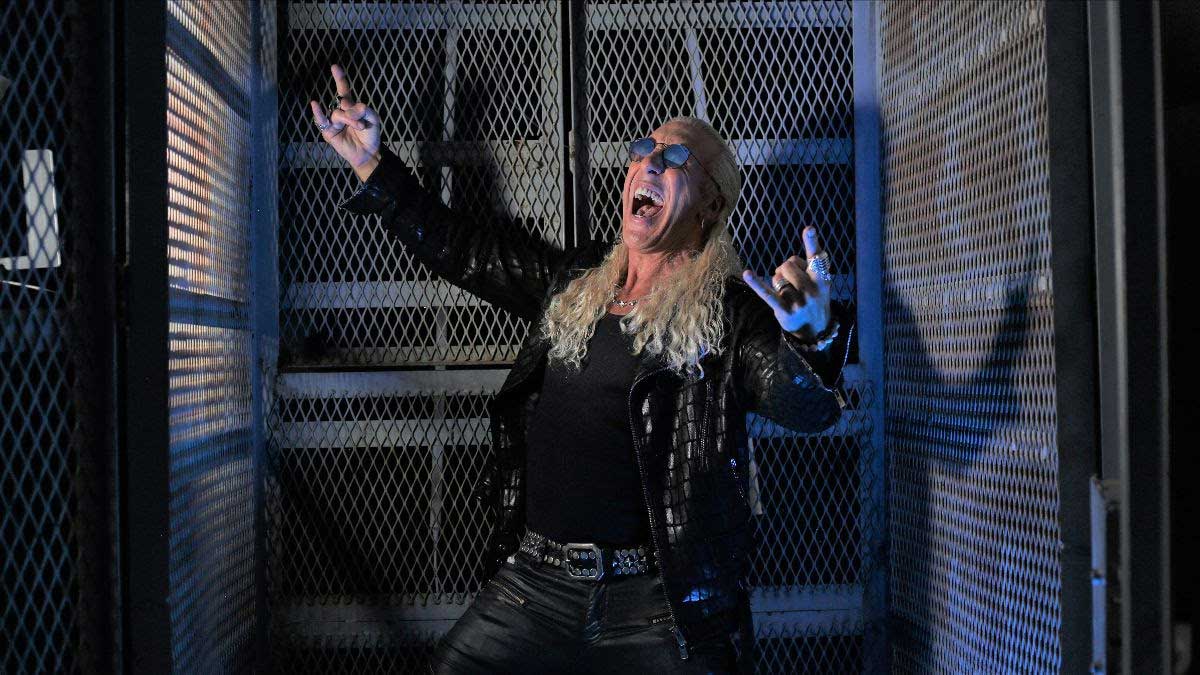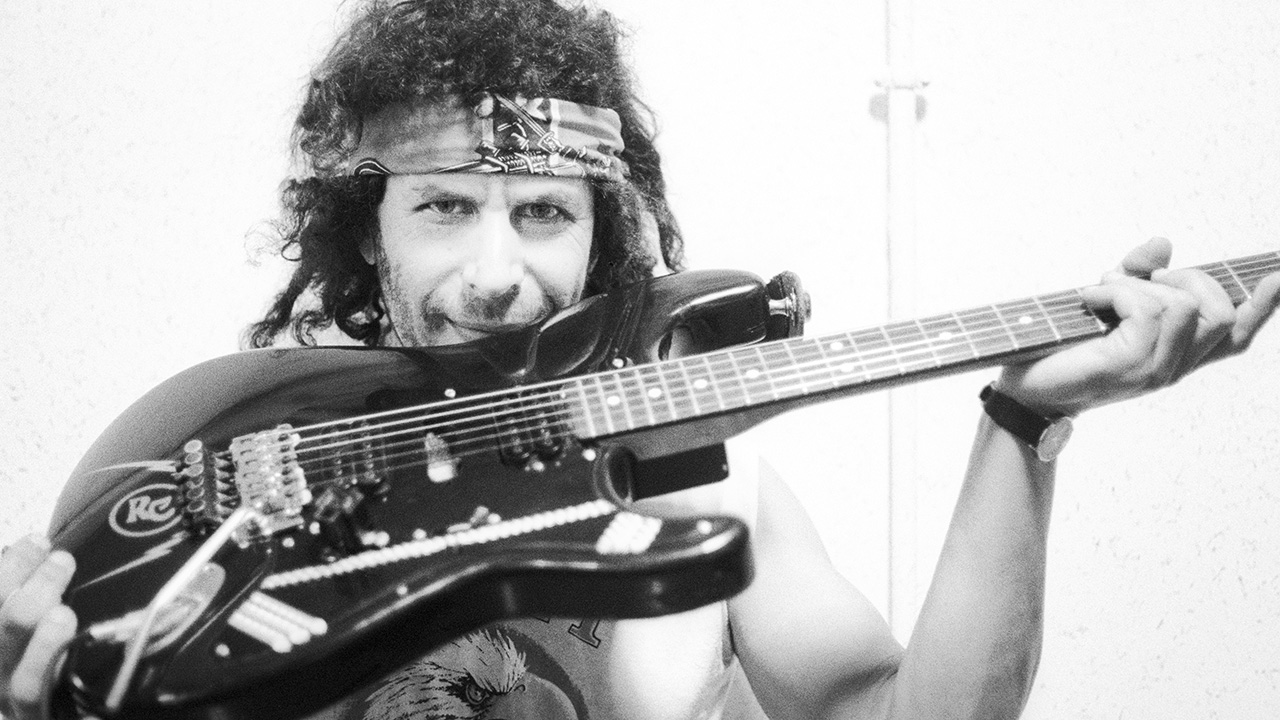Dee Snider: my guide to life
Former Twisted Sister vocalist Dee Snider on brawling, blowing a fortune and why fronting a rock band is like being a hired assassin. Here are his essential life lessons

Select the newsletters you’d like to receive. Then, add your email to sign up.
You are now subscribed
Your newsletter sign-up was successful
Want to add more newsletters?

Every Friday
Louder
Louder’s weekly newsletter is jam-packed with the team’s personal highlights from the last seven days, including features, breaking news, reviews and tons of juicy exclusives from the world of alternative music.

Every Friday
Classic Rock
The Classic Rock newsletter is an essential read for the discerning rock fan. Every week we bring you the news, reviews and the very best features and interviews from our extensive archive. Written by rock fans for rock fans.

Every Friday
Metal Hammer
For the last four decades Metal Hammer has been the world’s greatest metal magazine. Created by metalheads for metalheads, ‘Hammer takes you behind the scenes, closer to the action, and nearer to the bands that you love the most.

Every Friday
Prog
The Prog newsletter brings you the very best of Prog Magazine and our website, every Friday. We'll deliver you the very latest news from the Prog universe, informative features and archive material from Prog’s impressive vault.
Dee Snider is a man of many talents. The former Twisted Sister frontman may have made his name as a cross-dressing, PRMC-baiting, force of righteous heavy metal thunder, but over the years his repertoire has expanded to include everything from hosting the House Of Hair radio show to writing a Christmas musical.
He's appeared on Kitchen Nightmares with Gordon Ramsey, in a comedy sketch with Donald Trump, as Dennis in Rock Of Ages, and provided the voice of the Tooth Fairy on animated TV series Secret Mountain Fort Awesome. He's even made some music.
These days you'll also find him on busy on Twitter, mainly doing battle with people who clearly aren't as smart as he is. He's a man to learn from.

Son't believe your own hype
Twisted Sister were regionally famous long before we became internationally famous: without having a record out we drew 23,000 people to a local park for one free concert. So we were prepared for fame. But the lesson I learned the hard way, is not to believe your own hype.
I became a megalomaniac, thinking I floated on air, and I alienated my band, my family, my wife… all because I believed everyone telling me how amazing I was. Eventually I came crashing down to earth and lost everything, and that was a good humbling. It made me a much better man.
Leave your cool at the door
The catch-phrase in our house was ‘Leave your cool at the door’. You’re not a rock star at home, you’re a husband and a father, not some celebrity. What you do outside the family home is great, but you can’t be that person inside the house.
My wife and I once did a reality TV Celebrity Wife Swap with Flavor Flav from Public Enemy, and my wife had to teach Flav about that. She was like, ‘Put down the clock around your neck, take off those sunglasses and be a person.’
Sign up below to get the latest from Classic Rock, plus exclusive special offers, direct to your inbox!
Money can make you lose your mind
I made a shit-load of money and I lost every single penny. Not because I was high – because I didn’t drink or do drugs – and not because I was ripped off by managers or lawyers: I had no-one to blame but me. The ego that drives you to believe that you can be a star, against all the odds, is the same ego that, when you make it, refuses to acknowledge the warning signs when things are turning to shit.
I was so broke at one point that in 1992 the only job I could get was answering phones in an office for $200 a week. People would walk in and say, ‘Aren’t you…?’ And I’d lie, and say, No, I just look like him.
(You gotta) fight for your right (to party)
In the early days of Twisted Sister, we got into fights every night. And, proudly, I never got my ass kicked. I’m not the toughest guy in the world, but I’m crazy. Look, if I’m crazy enough to wear women’s lingerie on-stage in a biker bar, do you honestly think I won’t come into the audience and find you when you yell ‘Faggot!’ at me?
I knew that the way we looked would offend people, and I also know that to make this work meant that we couldn’t give an inch. That was true even after we became famous. After I beat up some guy who threw a bottle at me at one arena show, my manager and lawyer insisted I get a bodyguard, to protect people from me!
Once our limo was stopped at traffic lights and these drunk guys were yelling, ‘You fucking suck!’ My bodyguard jumps out, pulls one guy out of the car, beats him, drops him in the street and we drove off. He said, ‘How was that boss?’ I said, It was kinda like watching someone else fuck your old lady: it looked really good, but it didn’t feel the same.’
Rock'n'roll is not for everyone
I viewed performing like I was a hit-man: I’d come into town under cover of darkness, I’d hang out alone in my room and get prepared, and then I’d go out and kill the audience and disappear. I’d be utterly drained each night, exhausted, mentally and physically, and then I’d go out and do it all again.
Performing wasn’t enjoyable for me, because I took it too seriously. Touring was not a fun existence, it was often a miserable and painful existence. People say, ‘So why did you do it?’ and I can’t explain it, I was driven to do it. For me, it wasn’t about whether I was having fun, it was all about them, not me.
Life is a marathon, not a sprint
I never wanted to join the ’27 Club’, I didn’t want to join Jim Morrison or Jimi Hendrix as a cool dead star, I wanted to be a survivor, not a statistic. The very first time I drank, at age 14, I drank myself into a stupor and I swore off demon alcohol after that.
I have an obsessive personality, and I recognised that I couldn’t be trusted with alcohol or drugs. Thank God I didn’t go down that path. I didn’t have some of the great experiences that other out-of-control rockers have, but I’m still here to tell my own stories.
Parlay hard!
When I meet young musicians who’ve had some success I grab them by the collar and shake them and I go, Parlay man, parlay! They’re like, ‘What do you mean, you want to talk?’ And I say, No, I’m saying, parlay what you’re achieving now into other things. Maybe one per cent of successful musicians have a life-long career – Elton John, Ozzy, Eric Clapton – but most of us just have a moment, and then you have to take that energy and invest it in other things.
Music is now the least of my artistic endeavours: I do radio and television, I just sold a children’s animated series to Netflix, I’m acting, I’m producing films. I learned the hard way that music isn’t forever.
Dreams can come true
My parents were very against my pursuit of rock’n’roll as a career. They were Depression babies, they came from a time when, famously, people were told that dreams don’t come true. They believed that the only way you get anywhere in life is with blood, sweat and tears.
That’s completely true, but also dreams can come true, and I’ve proved it. When I starred on Broadway and Celine Dion recorded a Christmas song I wrote for my wife they finally saw that my life is legitimate.

A music writer since 1993, formerly Editor of Kerrang! and Planet Rock magazine (RIP), Paul Brannigan is a Contributing Editor to Louder. Having previously written books on Lemmy, Dave Grohl (the Sunday Times best-seller This Is A Call) and Metallica (Birth School Metallica Death, co-authored with Ian Winwood), his Eddie Van Halen biography (Eruption in the UK, Unchained in the US) emerged in 2021. He has written for Rolling Stone, Mojo and Q, hung out with Fugazi at Dischord House, flown on Ozzy Osbourne's private jet, played Angus Young's Gibson SG, and interviewed everyone from Aerosmith and Beastie Boys to Young Gods and ZZ Top. Born in the North of Ireland, Brannigan lives in North London and supports The Arsenal.
